Are you looking to establish a solid telecommunications service agreement? Crafting the perfect letter can set the tone for a successful partnership between your business and a service provider. In this article, we'll guide you through essential elements to include in your agreement letter, ensuring clarity and professionalism. Stick around to explore key tips and templates that will help you navigate this important process!
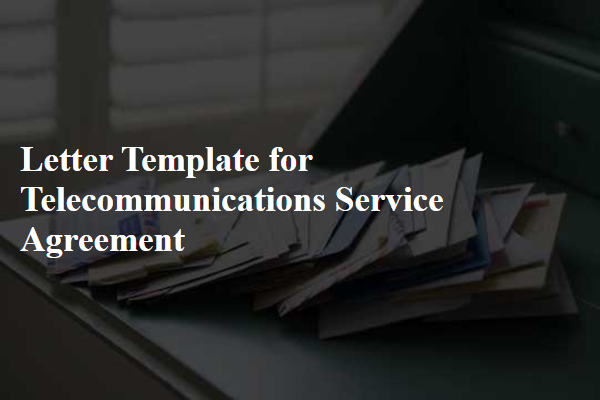
Parties Involved
A telecommunications service agreement typically identifies key parties involved in the contract, such as "Service Provider," which can refer to companies like Verizon or AT&T operating in the United States, and "Customer," which can be an individual, business, or organization requiring services like internet or phone lines. The parties can also include entities such as "Third-Party Vendors," which may provide additional services or equipment, and "Regulatory Authorities," which oversee compliance with telecommunications laws and regulations that change periodically. Important documents, such as "Service Level Agreements" (SLAs), may outline the expectations and performance metrics tied to each party's obligations. Definitions of terms such as "Deployment," referring to the installation process of telecommunications infrastructure, or "Latency," the delay before data transfer begins following an instruction, enrich the context of the agreement.
Service Description
Telecommunications service agreements outline essential details concerning the provision of services, such as internet connectivity, telephone communication, and data transmission. These agreements typically specify various tiers of service, including bandwidth options, data limits, and technical support availability. Key components include designated service locations, such as residential addresses or business premises, alongside service initiation dates and contract durations, which may span from 12 to 36 months. Additional clauses may address equipment requirements, such as routers and modems, alongside installation fees and ongoing maintenance responsibilities. Noteworthy is the inclusion of service-level agreements (SLAs), which establish performance metrics, including uptime guarantees (often 99.9% for high-quality service), and defined response times for issue resolution. Accurately detailing these elements ensures a clear understanding of the telecommunications framework and expectations for both service providers and consumers.
Payment Terms
Telecommunications service agreements often include detailed payment terms to outline the financial responsibilities of both parties involved. For instance, monthly service fees may typically range from $50 to $200, depending on the plan selected, encompassing data, voice, and text services. In addition, late payment penalties might incur a fee of approximately $15 or 1.5% of the overdue amount. Customers could also be required to pay a one-time installation fee, which often averages around $100, to set up the necessary equipment and network access. Furthermore, contracts may stipulate an early termination fee, potentially equal to the remaining balance of the contract term, typically around $300 for early cancellation within a 12-month agreement. All payments are usually due by the end of the billing cycle, with specific due dates communicated via email or customer portals, ensuring clarity and adherence to the agreed terms.
Duration and Termination
A telecommunications service agreement typically outlines the duration and termination conditions to clarify the expectations of both parties involved. The service agreement will specify the initial term, commonly one to three years, establishing a binding commitment for the user to receive services such as high-speed internet or mobile connectivity from service providers like AT&T or Verizon starting from the activation date. Termination clauses often allow for early termination with penalties, typically ranging from $100 to $300, encouraging users to meet their contractual obligations. Notice periods for termination may also be stipulated, frequently requiring a 30 to 60-day notice ahead of a desired cancellation to prevent automatic renewal. Understanding these terms ensures consumers make informed decisions regarding their telecommunications services.
Confidentiality and Privacy
Telecommunications service agreements often contain extensive clauses regarding confidentiality and privacy, ensuring that sensitive information remains protected. Generally, these agreements emphasize the importance of safeguarding customer data, including personal identifiers such as names, addresses, and billing information. Service providers, such as major companies like Verizon or AT&T, must adhere to regulations outlined in laws like the Federal Communications Commission (FCC) policies. Confidentiality clauses usually specify the penalties for data breaches, outlining potential fines that can reach up to millions of dollars depending on the severity of the violation. In addition, such agreements may stipulate the duration of confidentiality obligations, often extending beyond the termination of the service, to prevent any misuse of the privileged information even after the contractual relationship has ended.

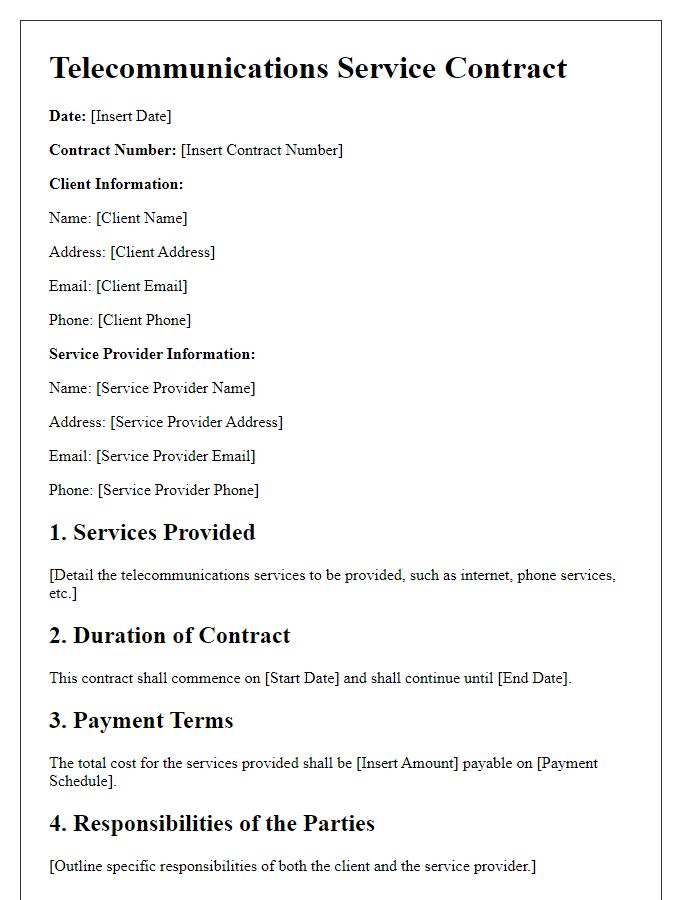
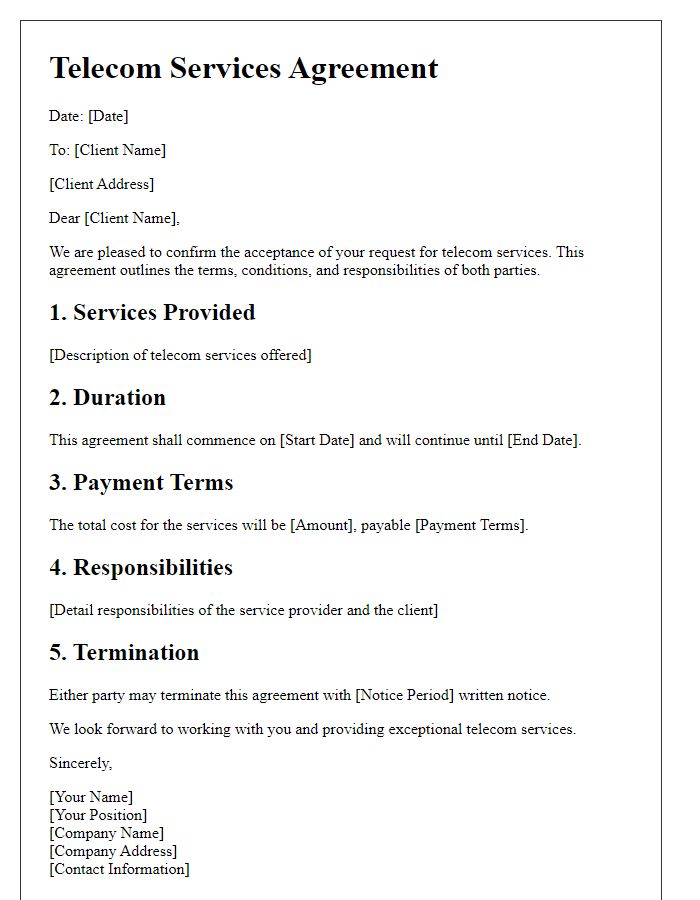
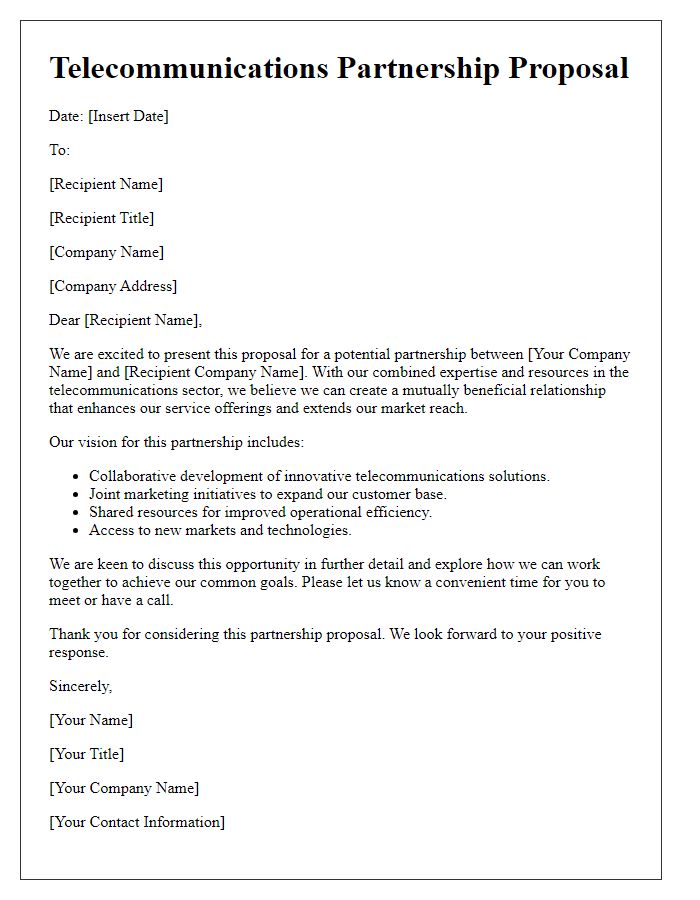
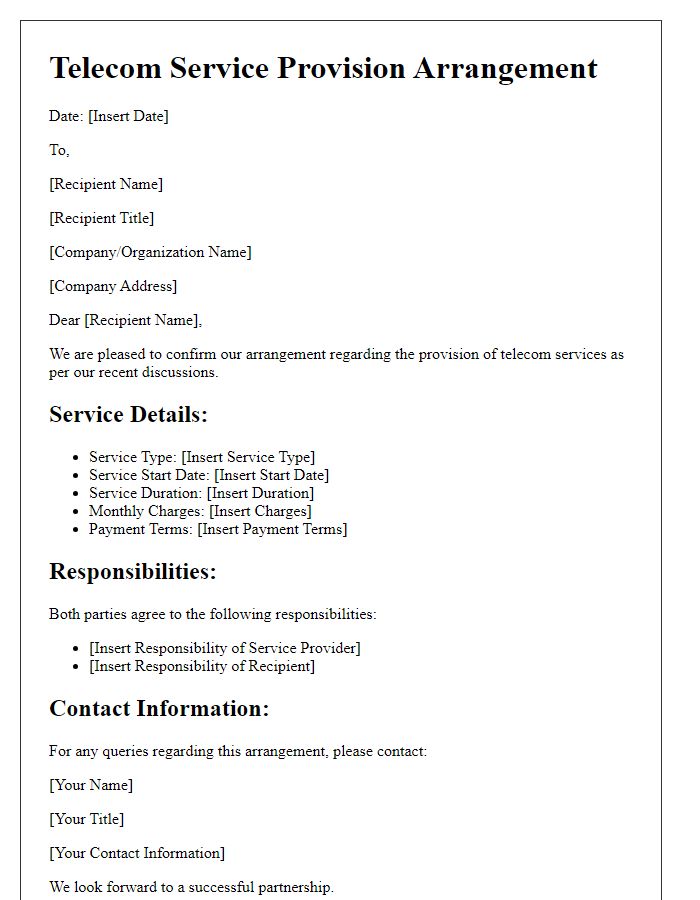
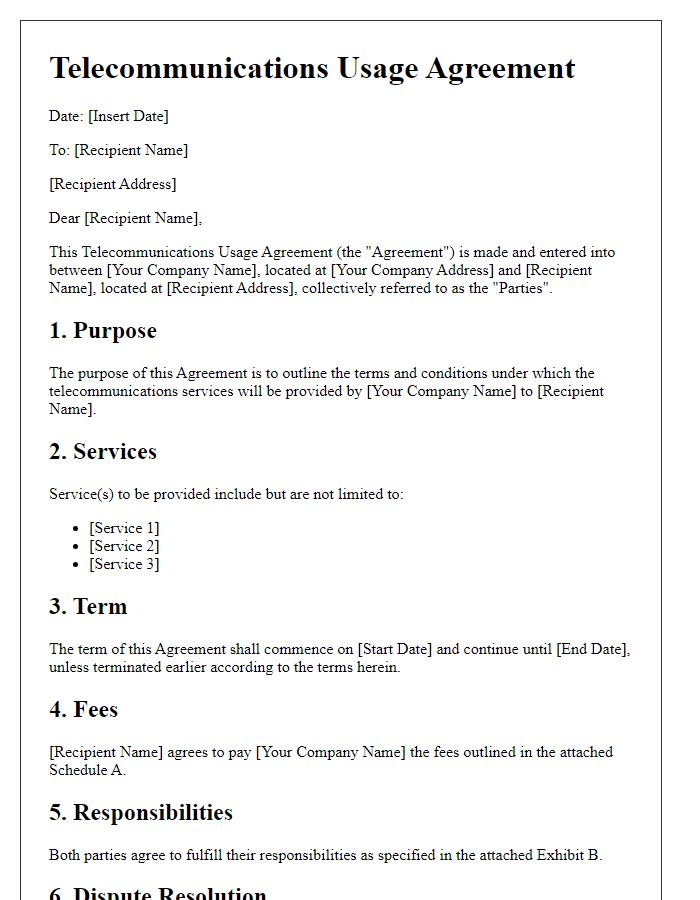
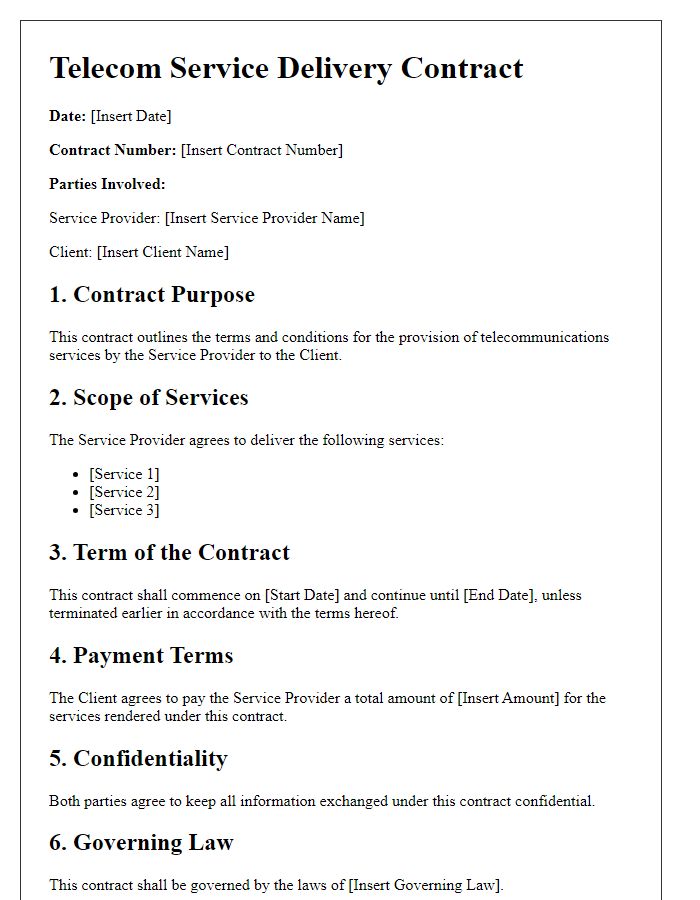
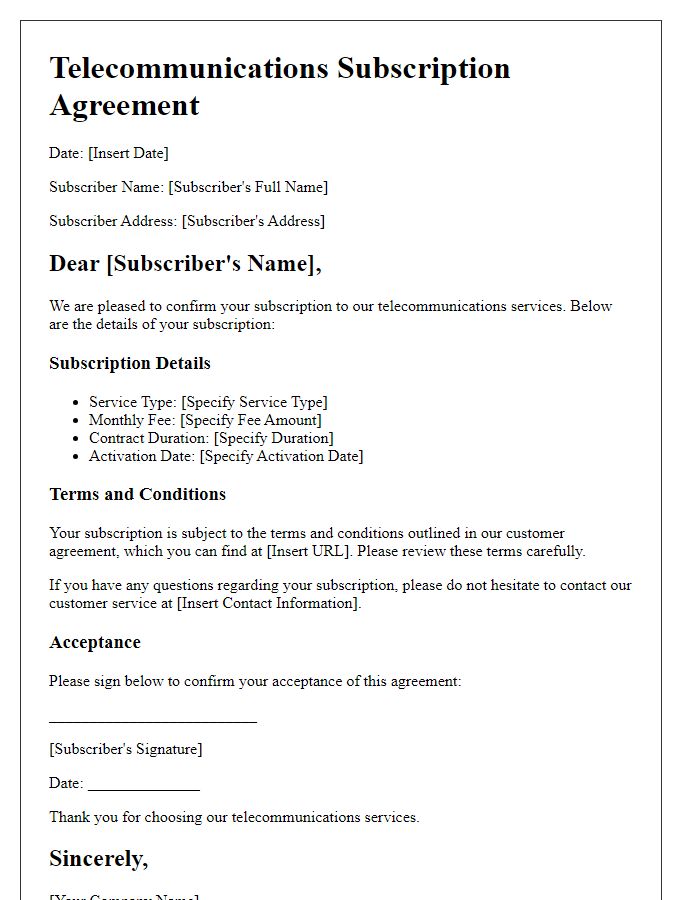
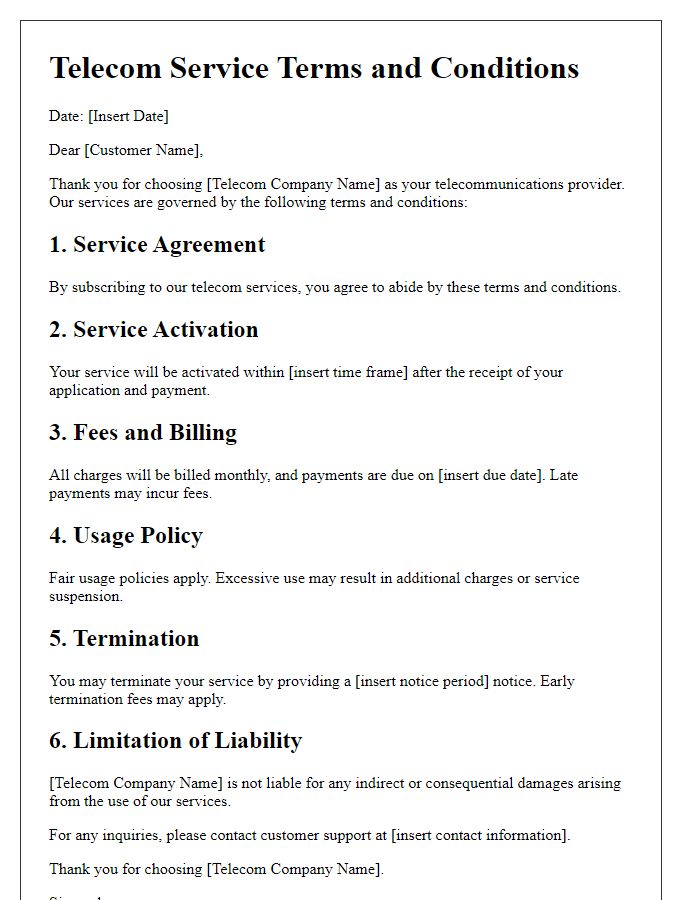
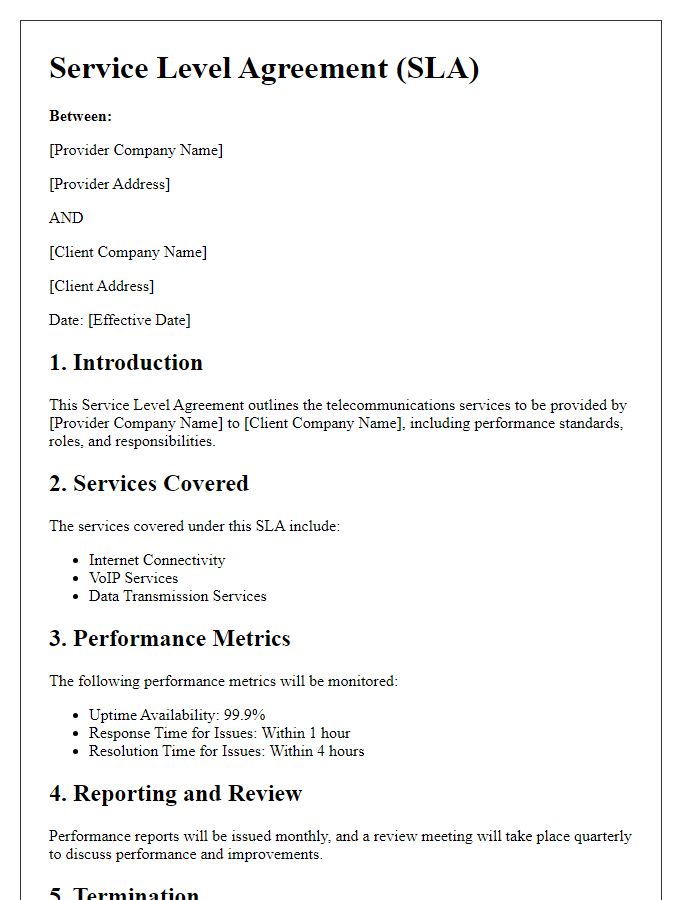
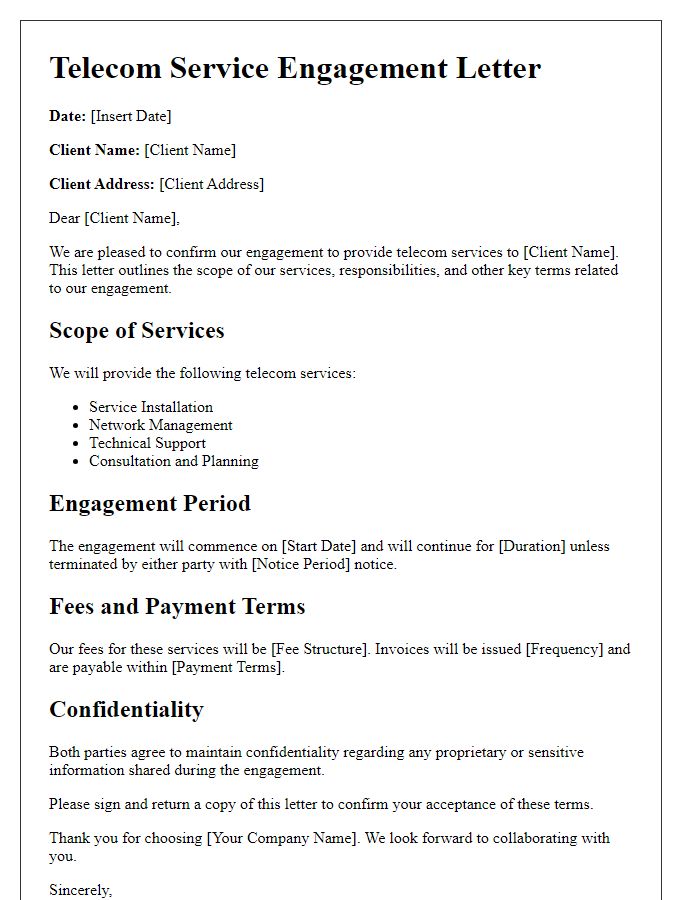


Comments